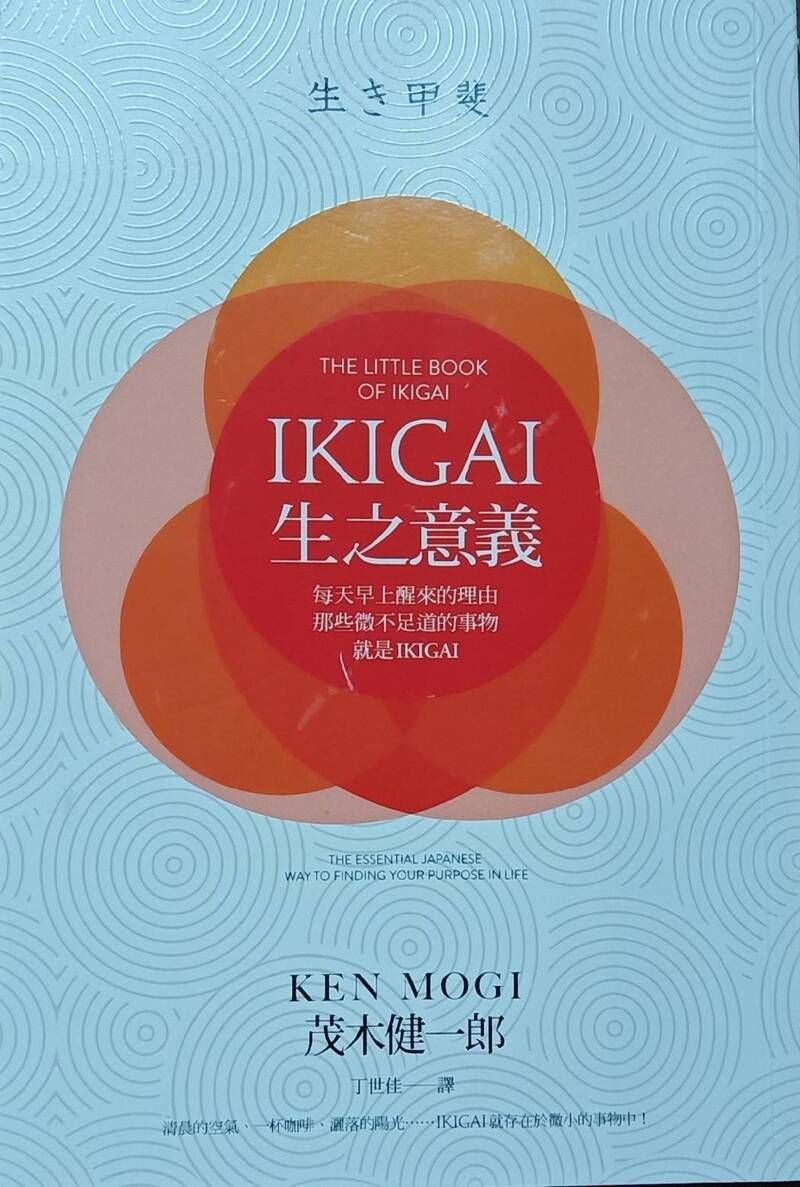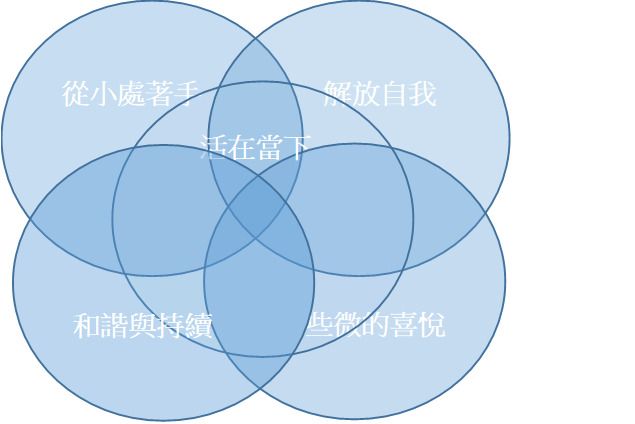IKIGAI (Kai of Life) Meaning of Life

Recommended book: IKIGAI (The Kai of Life) The Meaning of Life
Author: Kenichiro Mogi, translated by Ding Shijia
Publisher: Lianjing
Publication date: May 2019
Ikigai is a word used by the Japanese to describe the meaning and joy of existence. This word is a combination of " Iki ", which is life, and " gai ", the reason. In Japanese, ikigai is used in a variety of situations, from the most insignificant, everyday occurrences to grand goals and achievements. This is an everyday vocabulary that people use casually, and they don't think it has any special meaning. The most important thing is that you don't have to be famous to have ikigai.
The author and brain scientist Kenichiro Motegi examines the Japanese lifestyle, culture, tradition, mentality, philosophy of life..., and specifically interprets the meaning of ikigai.
Ikigai has five important pillars (foundation/key), there is no order, or which one is more important, and they do not conflict with each other.

1. Start small
<in life>
Ikigai exists in tiny things, such as the morning air, a cup of coffee, sunshine... A 100-year-old fisherman said that his ikigai goes out to sea three times a week to return home, and a 102-year-old mother-in-law said that her ikigai is With her little grandson in her arms, an old professor cherishes a chair his father made for him when he was a child... whatever it is, the point is to discover, define, and appreciate what you give meaning to, and stick with it, even if others It doesn't matter if you don't see that value.
In addition, starting small is also a characteristic of youth, because at this time it is impossible to achieve a big career immediately, no matter what you do, it will not have much impact on the world, so you must allow yourself to be unrestricted and curious, start small, and be serious , Be passionate about your goals, no matter how small.
<at work>
Now the world-renowned restaurant - Sukiyabashi Jiro, the owner Jiro Ono's goal is not to create the world's number one restaurant, so he opened a sushi restaurant at the beginning, just because the cost of opening a sushi restaurant was cheaper than other restaurants at that time. Ono's ikigai is an endless pursuit of quality, even if it cannot be mass-produced because of this, the early public cannot understand it. For example, designing a special container to be placed in the counter to keep everything in order; improving several tools for making sushi, which became his original tools, many of which were later used by other restaurants unexpectedly. These small advances are all Ikigai—start small.
2. Free yourself
In fact, it means focusing on the things you love, forgetting yourself and presenting a state of selflessness and flow.
Heart flow is the mental state of "flow" proposed by the Hungarian-American psychologist Mihaly Csilkszentmihalyi (1934). When people focus on something, everything else Regardless of state of mind, this is how to have fun at work.
Work is an end in itself and salary is just an added bonus. When you are in a state of flow, in tune with the different elements within and without you, you have the cognitive ability to notice the nuances you encounter in order to pursue your best qualities.
3. Live in the moment
When you are in flow, as if you are focused on playing music, you can play music when no one is listening, draw pictures when no one is watching, and write stories when no one is reading. It is the joy and satisfaction in your heart that keeps you going. This is Enjoy the moment, live in the moment.
Four, a little joy
Because the joy and satisfaction you feel in your heart makes you continue to invest in something, so such joy and satisfaction are also one of the foundations of Ikigai. It should be noted that this kind of happiness does not come from the approval of others, material rewards, or the values of the universal society!
To feel pure joy and satisfaction, only by liberating yourself, especially giving up the illusory self that you think should be like this, can you accept yourself and obtain happiness. This is the biggest secret of Ikigai. Each of us has to find our true self among our many characteristics, and don't forget to smile happily when looking for it.
V. Harmony and sustainability
In Japanese culture, Ikigai has a lot to do with being in harmony with the people around you and the whole society and environment. Everyone has their own roles in society/work/family, which has nothing to do with the level of status in social values. Only by performing their duties can the overall society and the environment operate harmoniously.
The best example of "harmony and continuity" is the Ise Shrine. Located in the vast forest of more than 5,500 hectares in Mie Prefecture in western Japan, it is the most sacred shrine in Japanese Shinto, dedicated to Amaterasu Omikami. According to Japanese myths and legends, the Imperial Palace is the descendant of Amaterasu, so Ise Shrine has always had a deep relationship with the Japanese imperial family. During the G7 summit in 2016, world leaders all visited, so you can know the importance of this place.
The most pertinent aspect of Ise Shrine's pursuit of Ikigai is the careful dismantling of the shrine building every twenty years and the rebuilding of an identical shrine at a new location with new wood. In order to be exactly the same, the cypress used for the beams and columns of the Jingu must have been planted decades ago, and some wood must have certain specifications, which can only be met if the cypress is more than 200 years old.
For special carpentry skills, train carpenters dedicated to the maintenance of shrines (and of course the cultivation of other craftsman skills). There are as many as 1,500 clergy and staff maintaining the shrine, not to mention businessmen and forestry workers who indirectly maintain the shrine. According to records, the process of moving the palace every 20 years has lasted for more than 1,200 years. Committed to the tradition of moving palaces, the harmony and continuity of the organization of these people is Ikigai.
in conclusion:
Ikigai is the important thing in your life, like the universal motor of every yacht. The driving force of the universal motor is not strong, but it is stable and reliable. In an emergency or adversity, the universal motor can allow you to return to your own safe haven and start the adventure of life again from there.
Like my work? Don't forget to support and clap, let me know that you are with me on the road of creation. Keep this enthusiasm together!

- Author
- More